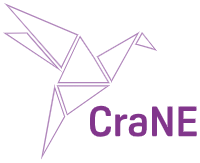Speakers
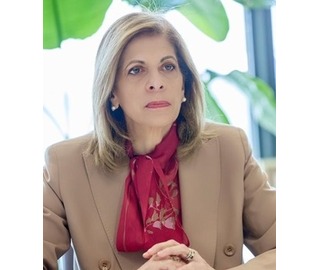
Stella Kyriakides
European Commissioner for Health and Food Safety, Stella Kyriakides has been leading the Commission’s work in the area of health to establish a strong European Health Union.
It includes Europe’s Beating Cancer Plan, the implementation of the EU Pharmaceutical Strategy, the European Health Data Space, overseeing the work of the new European Health Preparedness and Response Authority and the operationalisation of the EU4Health funding Programme. She is also leading the Commission’s new comprehensive approach to mental health.
During the COVID-19 pandemic, Commissioner Kyriakides led the EU’s public health response.
Commissioner Kyriakides is also responsible for upholding and strengthening EU food safety and sustainability standards, covering every step in the food chain from production to consumption. Her responsibilities include animal welfare, as well as leading the work to protect animal and plant health.
In 2006-2019, she was elected to the Cyprus Parliament for the Democratic Rally party, of which she was the Vice-President for ten years.
In 2011, she was appointed Head of the Cyprus Delegation to the Parliamentary Assembly of the Council of Europe (PACE).
In 2017, she was elected President of the PACE, the fourth woman to hold this position in the history of the Assembly.
A psychologist by profession, she has been an active advocate on children and patients’ rights.
Following her own breast cancer diagnosis, she founded the breast cancer organisation in Cyprus Europa Donna Cyprus, for which she served as President for over 15 years. She was elected President to the European Breast Cancer Coalition Europa Donna and served on numerous European patient advocacy and scientific boards.
She is the recipient of numerous awards from her community service in Cyprus and globally.
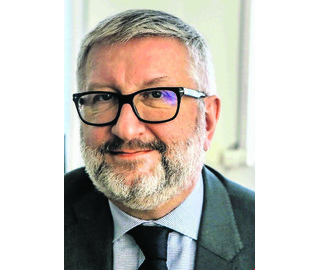
Dr. Tit Albreht, M.D.
Dr. Tit Albreht, M.D. (1961), Slovenian, Ph.D. in Health Services Research at the University of Amsterdam, Head of the Centre for Health Care at the National Institute of Public Health of Slovenia, A senior researcher in the field of health services research, health policy and health systems research, comprehensive cancer control and cancer screening, member of the Scientific Committee of EUPHA, former president of the Slovenian Preventive Medicine Society, member of the Strategic Council for Health Care of the Slovenian Government. He acts as a reviewer of several scientific journals and of projects submitted for financing to the European Commission. From 2011 to 2014 he was a work package leader of the Work Package in the Joint Action EPAAC – European Partnership for Action Against Cancer. This process resulted in the European Guide on National Cancer Control Programmes. He was the co-ordinator of the Joint Action Cancon (Cancer Control), an EU co-financed project dedicated to informing the development of cancer policies at the EU and Member State levels. He was the coordinator of the third Joint Action on cancer control, entitled innovative Partnership for Action Against Cancer (iPAAC), and is the scientific coordinator of the fourth Joint Action on cancer control, Network of Comprehensive Cancer Centres – Preparatory activities on creation of National Comprehensive Cancer Centres and EU Networking (CraNE). He is an Associate Professor of Public Health at the Medical Faculty of Ljubljana, Slovenia and teaching public health and epidemiology at the Medical Faculty of Maribor and at the Faculty of Nursing in Maribor. From November 2024 he will be the President of the European Public Health Association.
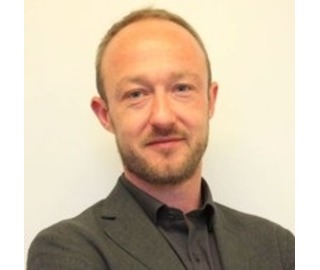
Thomas Dubois
Thomas Dubois has an established career in international and European public policy, with a focus on health policy, the translation of scientific research, and international collaborations. Currently serving as the Head of European and International Affairs at the Institut National du Cancer (INCa) in France, Thomas has been instrumental in elevating France's role in the European Cancer Plan, tripling the national engagement portfolio and strengthening France's presence in European health policy.
Under his leadership, INCa initiated a groundbreaking project to integrate comprehensive cancer centers across Europe, managing a consortium of over 160 partners with a dedicated budget of €90 million. Thomas also spearheaded the G7 Cancer initiative, establishing a collaborative framework among global leaders to unify efforts in cancer research, prevention, and treatment, thereby enhancing international cooperation and knowledge exchange.
Before joining INCa, Thomas served as a Diplomatic Advisor in the Cabinet of the Minister of Families, Gender Equality, and Childhood. He began his career at the Ministry of Foreign Affairs and International Development as a Policy Advisor, managing significant global health initiatives and demonstrating his ability to align international aid with strategic health outcomes.
Thomas holds a Ph.D. in Social Sciences with honors from the École des Hautes Études en Sciences Sociales (EHESS), France, where his research focused on the interplay between public policy and economic/societal outcomes. His academic credentials also include certifications from prestigious institutions, including a Certification in Leadership of Innovation from Sciences Po Paris, emphasizing innovation within complex organizations; a Certification in Communication Strategy from the École Nationale d'Administration (ENA), focusing on stakeholder engagement and effective messaging in policy advocacy; and a Certification in Humanitarian Action from Harvard University, highlighting ethical considerations and international cooperation in crisis response.
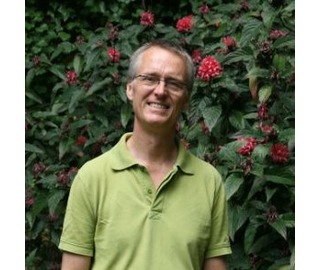
Per Magnus Mæhle
Per Magnus Mæhle holds the position as general manager of the Cancer Centre Board at Oslo University Hospital (OUH) – Comprehensive Cancer Center (CCC). The hospital is competent authority of Norway in the EU Joint Actions of Crane, Jane and the new EU CCC Net and OUH is also partner in CCI4EU. Mæhle is representing OUH in work package leads in these programs.
Mæhle had the position as project manager in two CCC accreditation processes of OUH and has been one of the initiators of the Nordic-Baltic network of CCCs.
Previously he has had other leading positions in OUH, the Regional Health Authority in South-Eastern Norway, in private industries and in the Norwegian Ministry of Finance.
Mæhle has a degree in Sociology from Faculty of Social Sciences and a PhDs from the faculty of Medicine, both University of Oslo.
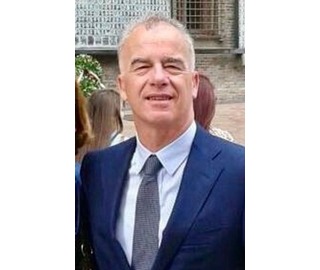
Paolo De Paoli
Dr. Paolo De Paoli is a medical professional with a deep commitment to advancing quality in cancer care and research. He earned his M.D. degree from the University of Padova, followed by specialties in Clinical Immunology, Microbiology, and Hematology. Over his career, he has held key leadership positions, including nearly two decades at the National Cancer Research Institute (CRO) in Aviano, Italy, where he served as Scientific Director and eight years as a member of the OECI Accreditation and Designation Board. An esteemed academic with over 270 scientific publications, he has held visiting and adjunct professorships at the University of Udine and Temple University in Philadelphia, furthering education in microbiology and oncology. Since 2018, Dr. De Paoli has been the General Director of Alliance Against Cancer in Rome, where he continues to advance national cancer research and policy.
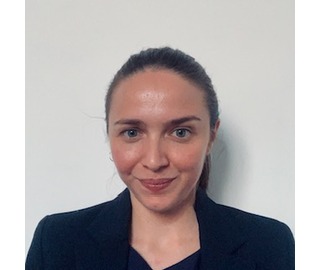
Elena Preziosa
Elena Preziosa works as a Project Manager at Alliance Against Cancer in Rome, where she oversees two major EU-funded projects: CraNE and CCI4EU.
Her previous experience includes research and consultancy roles with various international organizations, where she contributed to the management and implementation of sustainable development programs and projects. She holds a BA in Political Science from John Cabot University in Italy and two MSc degrees—one in Global Governance and Ethics from University College London in the UK and another in Crisis and Security Management from Leiden University in the Netherlands.
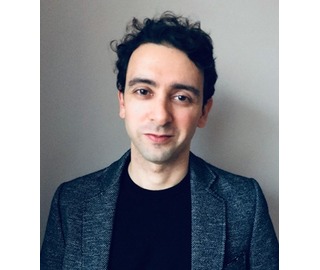
Joan Prades
Joan Prades is a senior researcher specialised in the analysis of cancer healthcare services and policy working at the Catalan Cancer Strategy (Health Department of Catalonia, Spain), and associated professor of the University of Barcelona (UB). The main areas of interest encompass the organisational models and strategies that determine the effectiveness, efficiency and equity of health services, with a strong research focus on clinical decision-making processes (e.g., multidisciplinary teams, integrated care pathways, care networks). He graduated from the Universitat Autonoma of Barcelona (UAB) in 2004, coursed a Master in Public Policies in 2005 (University Pompeu Fabra, UPF), a Master in Public Health in 2009 (UPF), and obtained the Ph.D. by the Faculty of Medicine (UB) in 2012. He published a number of studies and was involved in different EU Joint Actions (EPAAC, CanCON, JARC, IPAAC, and CRANE), where he coordinated initiatives and studies that contributed to increase the organisational capacity of healthcare systems to tackle different cancer challenges.
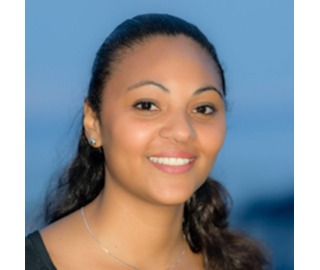
Régine Kiasuwa-Mbengi
Régine Kiasuwa-Mbengi is a political scientist, specialized in Health Policies and PhD in Public Health and visiting professor at the School of Public Health of the Université Libre de Bruxelles. In 2010, she worked for the European Social Observatory on cross-border care and social inclusion issues and started working for the Cancer Centre (Sciensano) in 2012. Since then, she dedicated her research efforts on the socio-professional reintegration of cancer patients, supportive care, survivorship and rehabilitation issues, and on the improvement of the cancer care organization. She works both at national and European levels, trying to translate most advances in the Belgian context. Since 2020, she is leading the Supportive Care & Quality of Life unit where researchers work on monitoring and strengthening the quality and accessibility of cancer care in Belgium.
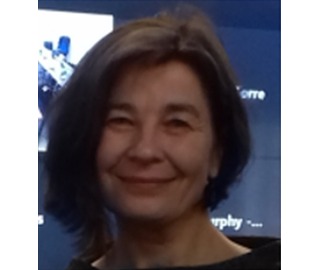
Dorota Dudek-Godeau
Dr. Dorota Dudek-Godeau received her doctorate in biology. She joined the group of researchers in cancer epidemiology in National Institute of Public Health National Institute of Hygiene – National Research Institute (NIPH NIH-NRI) in 2015, for European Transcan project - “HIGHCARE – High resolution project on prognosis and CARE of cancer patients” She was involved in analysis concerning the differentiation of prognostic factors between city and countryside in patients with colorectal cancer – regional population-based high resolution study and she is a co-supervisor of PhD based on the data collected in this project.
Dr. Dorota Dudek- Godeau was a Polish coordinator of Joint Action Innovative Partnership for Action Against Cancer and she was responsible for organization of two Polish Pilot Studies - practical application and implementation of the developed templates and framework in a Comprehensive Cancer Care Network (CCCN) in colorectal and pancreatic cancers in regional scale and nationwide study on monitoring of cancer care quality and oncological care cost indicators calculated on the basis of linked cancer registry and administrative databases. The pilot study on CCCN was already successfully completed with iPAAC certificate. She continues her work on the issues raised in iPAAC as the coordinator of the Polish pilot in the Joint Action CraNE which was already successfully completed and has expanded her work in this area, leading the tasks of preparing supporting materials for CCCN implementation and developing a capacity-building tool - the Maturity Model for the Comprehensive Cancer Center. She will continue her engagement in work on assurance quality in cancer care at various levels of reference in EUnetCCC Joint Action.
Her areas of interest and expertise include organizing and improving the quality of oncology care within comprehensive cancer care networks, as well as monitoring the continuous improvement of oncology care from diagnosis to palliative care or rehabilitation, including the Patient Pathway concept. She has a strong interest in developing capacity-building tools to meet cancer care standards and building interfaces within the oncology care network to provide a patient-centered pathway tailored to national health systems.
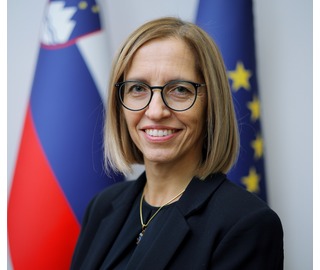
dr. Valentina Prevolnik Rupel
Prof. Valentina Prevolnik Rupel, born in 1971 in Ljubljana, holds a PhD from the Faculty of Economics in Ljubljana; her thesis (2008) was entitled "The impact of quality of life on priority setting and the efficiency of resource allocation in healthcare".
In her career, she has worked as a researcher and scientific advisor at the Institute for Economic Research in Ljubljana (IER), where she focused on the fields of health and long-term care. She has been the Chair of the IER Scientific Council, a lecturer at the DOBA Faculty of Applied Business and Social Studies in Maribor, and a member of the Prime Minister's Strategic Council for Health. She has also worked as an advisor to the Minister of Health and counsellor to the Director-General of the Health Insurance Institute of Slovenia.
Her fields of expertise are health outcome measurement and the development of healthcare quality indicators and value-based care, while her broader remit includes healthcare financing and health insurance and health technology assesment.
Before being appointed Minister of Health of the Republic of Slovenia on 13 October 2023, she held the position of the State Secretary at the Ministry of Health.
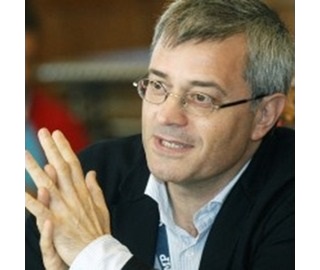
Josep Maria Borras Josep Maria Borras is director of the Catalonian Cancer Strategy since 2006 and Professor of Epidemiology and Public Health at the University of Barcelona (UAB). He is a graduate of UAB in Medicine (1981), holds a PhD in Epidemiology (UAB,1989) and a Master in Methodology of Health Sciences (UAB, 1988). From 1997 to 2006, he served as director of the Catalan Institute of Oncology playing a key role in its re-organization. In 2008 he became the Scientific Coordinator of the Spanish Cancer Strategy for the Spanish Health Ministry. He has been involved in research projects on the determinants of utilization of cancer services, and in the application of epidemiology to cancer services planning and evaluation. He has been involved in several European Joint Actions, concerning cancer plans (EPAAC), innovation in cancer (i-PAAC) and rare cancers (JARC) and Cancer Centres and Networks (CraNE).
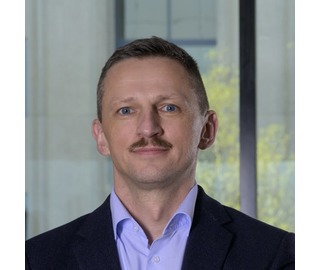
Nikolai Goncharenko Dr Nikolai Goncharenko, born in Kyiv, Ukraine, is a German national with a career in molecular biology, innovation management, and public health.
He graduated from Kyiv National Taras Shevchenko University with a degree in Biochemistry & Molecular Biology. He also holds a Ph.D. in Molecular Biology from Humboldt University of Berlin. His earlier research at the Max-Delbrück-Centre for Molecular Medicine (Berlin) focused on immunological aspects of dendritic cell activation. Additionally, he earned a Master’s degree in Innovation Management & Entrepreneurship from the University of Luxembourg. Fluent in several languages, he has worked across academia, consulting, and the public sector, focusing on cancer research and biomedical management in the domain of cancer. His previous professional accomplishments include establishing biobanks, managing clinical studies, advising on healthcare market strategies, and de novo setting up public and not-for-profit entities.
Currently serving as Director at the Institut National du Cancer (INC) in Luxembourg, Dr Goncharenko has extensive experience in leading public health initiatives, strategic project management, and fostering international collaborations.
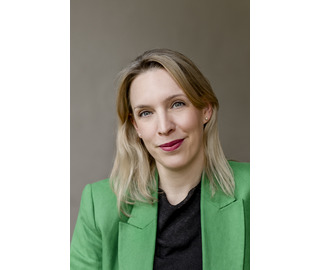
Ellen Griesshammer
Dr. rer. medic Ellen Griesshammer, who holds master’s degrees in Sociology and Public Health has over a decade experience in implementing and consulting Public Health projects worldwide for a range of different donors including EU, ADB, GIZ and KfW in the field of reproductive health and health system strengthening. For the past 7 years she has been exclusively worked on oncological topics, focusing especially on improving high-quality cancer care. In her work for the German Cancer Society e.V. she is head of the Europeans and International Affairs Unit and is in charge of the European Cancer Centre Certification Programme, a quality assurance programme for tumour-specific oncological networks (www.ecc-cert.org).
From 2018 – 2022 she participated in the Joint Action “innovative Partnership Action against Cancer” acting as the co-work package leader for “Governance of integrated and comprehensive Cancer Care”. Within the WP the concept of Comprehensive Cancer Care Networks (CCCNs) was developed and successfully implemented in two pilot-sites in Poland and Germany. Based on this work, Dr. Griesshammer, continued her engagement in the EU4Health Programme and is acting as co-work package lead in the new cancer Joint Action “Preparatory activities for the creation of a European Network of Comprehensive Cancer Centres” (2022-2024). The WP focuses on the organization of comprehensive high quality cancer care in Comprehensive Cancer Care Networks and the defintion of interfaces between research and care. In addition she is also part of a Horizon Europe Cancer Mission Project: Strengthening research capacities of Comprehensive Cancer Infrastructures (2023-2026). In this project she is the WP leader for defining the criteria and quality indicators for setting up national/regional Comprehensive Cancer Infrastructures in the member states of the European Union. Most recently she was also part of team that conducted an evaluation study of the Beating Cancer Action Plan commissioned by HADEA. In the upcoming JA EUNetCCC she will be leading the Work Package 9 continuing the work on implementing CCCNs throughout Europe.
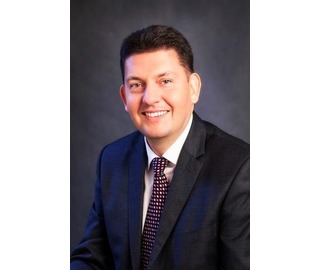
Arkadiusz Wierzbic
From the beginning of his professional career he has been associated with the University of Economics and Business in Wroclaw. For over 20 years he worked in the Department of Management Systems Design. Currently he works as an associate professor and is the head of the Department of Production and Labor Management.
He teaches courses in the area of standardized management systems, process design, quality management, organization improvement and interpersonal communication and negotiations.
Since 2013, he has been a member of the board of the Foundation for the Development of the Wroclaw University of Economics and Business, which has been the national partner of EFQM in Poland since 2016.
He combines his academic career at the Wroclaw University of Economics and Business with his work as a business consultant and trainer. For over a dozen years he has been running projects for the implementation of standardized management systems and their improvement. He has experience in consulting and training in the field of interpersonal communication and negotiations, quality management, standardized management systems including quality management, environmental management and occupational health and safety management and excellence models. Accredited trainer and assessor of the EFQM Model. He leads implementation projects of the EFQM Model.
Author of several dozen scientific articles and monographs. In 2013, he published a book entitled "A management system based on standardized requirements as a factor in the growth and development of small and medium-sized enterprises", which was the basis for a successfully completed habilitation procedure. The main theme of the scientific work is the practical application of solutions proposed within standardized management systems in a way that supports the business success of an organization.
He is a lecturer at many postgraduate studies and Executive MBA studies conducted for business practitioners. He directed the postgraduate studies Automotive Industry Manager organized by the University of Economics in Wrocław in partnership with leading companies in the automotive industry.
Since 2002, he has conducted approximately 800 certification audits of quality management systems compliant with the ISO 9001 standard. Since 2020, he has been invited as an assessor for the assessment of organizations as part of the EFQM Global Award.
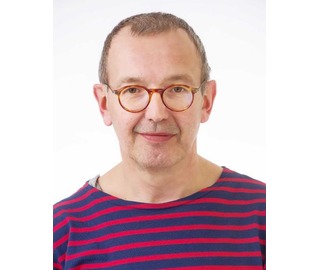
Marc Van den Bulcke
Marc Van den Bulcke obtained a PhD in sciences at the Laboratory of Genetics, University of Ghent (Belgium). He worked for about 7 years within the biotech industry at Plant genetic Systems (now Bayer Crop Science) where he was involved in regulatory affairs and biotech product quality assurance. During this period, he gained real-life experience with global registration processes, accreditation, product quality control/assurance and business relationships. Since 2003, he works at the Scientific Institute of Public Health (Brussels, Belgium), now Sciensano, where he supported the establishment of the National Reference Laboratory on GMO detection. He worked for 3 years as a contract agent at the ‘Institute of Health and Consumer Protection’ at the Joint Research Centre of
the European Commission where he coordinated policy-support research in molecular detection.
Since 2013, he heads the Cancer Centre, a unit dedicated at the monitoring and evaluation of the activities in cancer control in Belgium. In 2008 the Belgian national cancer plan was launched which evolved into a national cancer policy. A particular initiative is the introduction of ‘omics’ as tool in personalized medicine in oncology based on advances in translational research and public health. This initiative integrates the knowledge and requirements of the health professionals, the ‘Commission of Personalized Medicine”, centralized data-
collection and storage, linkage to the national population-based cancer registry, the expertise of the national HTA body and aims to make links to population aspects. Other key activities of the Cancer Centre focus on models to support the socio-professional reintegration of cancer patients, on screening and early detection (expert focus on cervical cancer), on palliative care and on integrating patients, citizens and general practitioners in the policy support activities of the Cancer Centre. Also, collaboration at EC level through several Joint Actions and several Horizon 2020 research projects has been a key interest of the centre.

Jo Etienne Abela
Minister Jo Etienne Abela is a medical doctor and a surgeon. He is specialised in surgery of the oesophagus and the pancreas. He has worked as a consultant surgeon at Mater Dei Hospital and Gozo Hospital for more than 10 years and is also as a visiting lecturer at the University of Malta. Minister Abela has held administrative positions as Deputy Head of the Department of Surgery and Lead Clinician in the High Dependency Unit and for endoscopy and pancreatic disease. He was appointed Minister for Active Ageing in 2022 and in early 2024 the Health Ministry was also added to his ministerial portfolio.
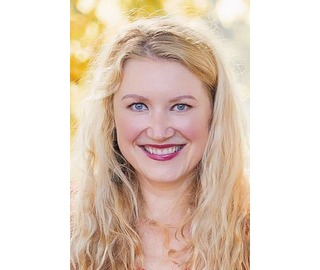
Sona Ciernikova
Sona Ciernikova is an Associate Professor of Biology and serves as Research and Education Project Coordinator at the National Oncology Institute (NOI). She is also a senior cancer researcher at the Biomedical Research Center, Slovak Academy of Sciences, primarily focusing on translational cancer research. Assoc. Prof. Ciernikova graduated from Comenius University in Bratislava (2002) and earned her PhD. in Genetics, specializing in Cancer Genetics (2006). She has authored and co-authored over 100 international and national publications, including book chapters, and holds the role of Secretary of the Scientific Council of NOI. She collaborates closely with the Ministry of Health of the Slovak Republic in initiatives supporting cancer prevention and works on projects with the International Agency for Research on Cancer (IARC). As a long-time board member of the Slovak Cancer Research Foundation, she is passionate about patient involvement and empowerment in cancer research and care. Currently, she is involved in efforts to reduce disparities in cancer research, innovation, and access to quality care across Central and Eastern European Countries (CEE) countries, and she is actively involved in establishing the first Comprehensive Cancer Center in Slovakia. At the EU level, she is a member of the Cancer Mission Working Group under the Strategic Configuration of the Horizon Europe Programme Committee and a member of the Sub-group on Cancer under the Expert Group on Public Health. Assoc. Prof. Ciernikova contributes to various projects aiming to fulfill the goals of Europe´s Beating Cancer Plan, co-coordinates CraNE JA in Slovakia, and coordinates the ECHoS and CCI4EU projects in the country.

